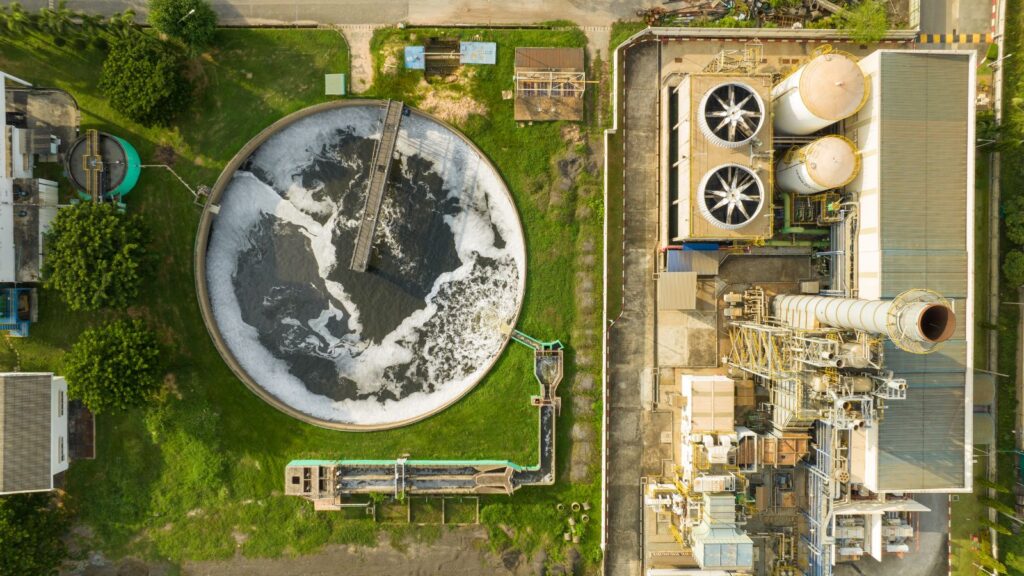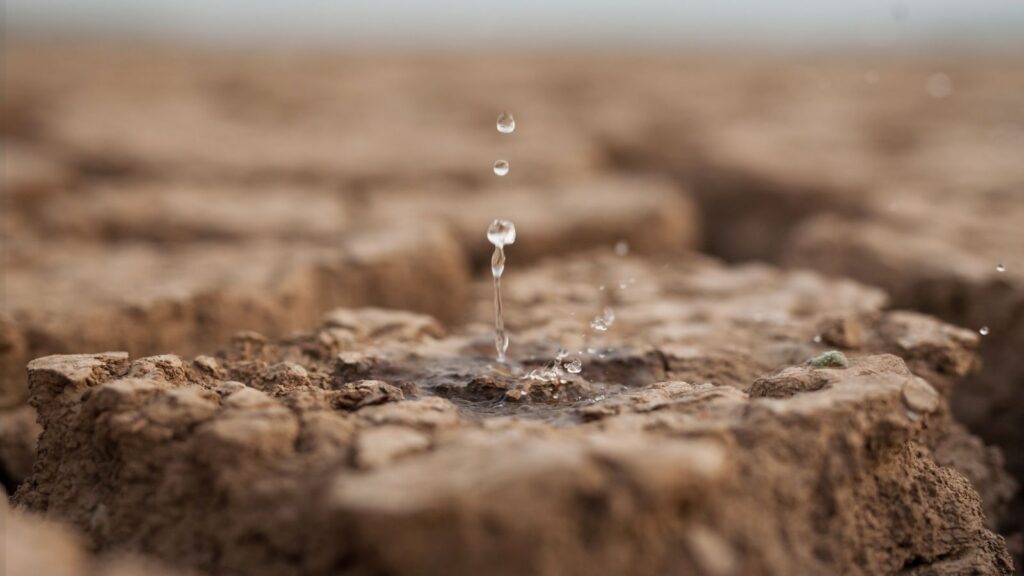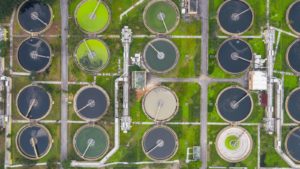Why should we waste money on brand-new things when we can get the same benefit from recycled ones?
This theory applies to the water as well.
Did you know that we have stepped into an era where we need to focus on recycling water before proceeding with new water production due to climate issues, droughts, limited sources, etc.?
There is a clear rise in the recycling of wastewater for economic benefits in Australia, and we will be revealing the reason for this to happen in our latest blog article.
We are going to look into
1. Exploring the Recycling Wastewater Industry in Australia
2. The Importance of Recycled Wastewater Usage
Exploring the Recycling Wastewater Industry in Australia

- Did you know that not only is Australia one of the driest continents for humans to live on, but it also has the most erratic rainfall of any continent on Earth?
- Australia experienced a decade of record low rainfall, and this was the point when the government put an aggressive focus on the targets to increase the volume of water recycled.
- This is not just another effort, but a 40-year-old adventurous journey now.
- Australia did not stop at initiating water recycling procedures but took the lead in creating national rules for the many applications of recycled water to safeguard the environment and public health in an effort to secure community support for recycled water.
- The Sydney Olympics in 2000 was a remarkable event for Australia, as it was themed ‘green games’, which the Australian authorities took as a massive opportunity to showcase what can be done to reduce the water footprint.
- This green initiative took centre stage as the Olympic Village was designed to serve as an example of how urban water cycle management concepts can be implemented in brand-new cities in a way that links stormwater, wastewater, and water supply systems.
The Importance of Recycled Wastewater Usage

Promoting Sustainable Practices
The best thing about recycled wastewater is that it promotes sustainable practices by conserving and maximising the use of limited water resources.
This effort seems to be reducing reliance on freshwater sources, which removes weight from natural ecosystems and reduces the energy-intensive process of treating and transporting fresh water.
When repurposing treated wastewater for various non-potable uses like irrigation, industrial processes, or replenishing groundwater, it minimises waste and ensures a more circular water economy.
This strategy supports sustainable objectives by encouraging sensible resource management and adaptability to growing water scarcity and environmental difficulties.
Recycled wastewater can:
- Reduce strain on freshwater sources.
- Minimise wastewater discharge into the environment.
- Conserve energy used in water treatment processes.
- Mitigate pollution and environmental contamination.
Climate Change Mitigation
Amid changing climate patterns impacting water availability, recycled wastewater comes out as a vital strategy for climate change mitigation.
As climate shifts lead to unpredictable weather events and water scarcity intensifies, recycled wastewater offers a sustainable solution by providing a reliable alternative source.
It reduces dependence on conventional water supplies, which is crucial during droughts or irregular rainfall. When repurposing treated wastewater for non-potable uses like landscaping or industrial needs, it conserves precious freshwater resources.
This sustainable approach ensures a steady supply of water even under unpredictable circumstances, functioning as a safeguard against the effects of climate change on water availability.
During stressful climate shifts, recycled wastewater can be utilised for:
- Agricultural irrigation
- Landscaping and green spaces
- Industrial processes
- Residential usage
- Groundwater recharge
Agricultural Use
This offers a sustainable solution to mitigate the stress on freshwater resources in farming in the first place.
If put simply, repurposing treated wastewater for irrigation reduces the demand for high-quality freshwater, preserving it for essential human consumption, and this practice not only conserves freshwater but also provides a reliable and consistent water supply for crops, which is beneficial especially during droughts or water scarcity.
The other fact is that treated wastewater contains essential nutrients that can benefit soil fertility.
The benefits of recycled wastewater in agriculture,
- Promotes sustainable farming practices
- Efficient water management
- Supporting food production
- Lessening the agricultural sector’s reliance on and impact on freshwater sources
Industrial Applications
Utilising treated wastewater as a non-potable water source in industrial processes alleviates the demand for high-quality freshwater, preserving it for essential purposes.
Industries often require substantial volumes of water for various operations, and recycled wastewater provides a reliable alternative, reducing reliance on limited freshwater resources.
This approach not only removes the weight from freshwater supplies but also promotes sustainable water management practices within industries.
Recycled wastewater for non-drinking purposes, like,
- Cooling
- Manufacturing
- Cleaning processes
- Reduced Discharge
When repurposing treated wastewater instead of releasing it into rivers or lakes, the ecological impact on aquatic ecosystems is notably minimised, and this practice curtails the discharge of potentially harmful substances, such as pollutants or chemicals, into natural water sources, safeguarding aquatic habitats and biodiversity.
The reduced discharge mitigates the risk of degrading water quality, preserving the balance and health of aquatic ecosystems.
Embracing recycled wastewater usage not only conserves freshwater but also fosters a more sustainable approach to managing water resources, lessening the environmental burden on natural water bodies and supporting their ecological integrity.
Drought Resilience
During droughts, recycled wastewater can be utilised as a crucial strategy for bolstering drought resilience.
Utilising treated wastewater offers a reliable alternative water source, which is crucial during prolonged dry spells.
When repurposing and recycling water that would otherwise go to waste, this practice ensures a consistent and sustainable supply, mitigating the impacts of water scarcity. It lessens the strain on conventional freshwater sources, providing a buffer against dwindling reserves during drought conditions.
Additionally, recycled wastewater usage contributes to the conservation of precious freshwater resources, promoting long-term resilience in regions vulnerable to water scarcity.
Embracing this approach enhances a community’s ability to endure and adapt in times of water stress, fostering resilience against the increasingly prevalent challenges posed by droughts.
Addressing Water Scarcity
Recycled wastewater usage serves as a crucial solution to address water scarcity, particularly in regions grappling with dwindling water supplies.
As water scarcity intensifies due to various factors like climate change and population growth, recycled wastewater emerges as an additional, sustainable water source. When repurposing treated wastewater, it offers a viable solution to supplement limited freshwater reserves, alleviating shortages.
This practice mitigates the impact of water scarcity by providing an alternative source for non-potable uses, reducing the strain on already stressed water supplies.
Embracing recycled wastewater usage becomes imperative in ensuring a more resilient and reliable water supply, especially in regions facing acute water scarcity challenges, contributing significantly to sustainable water management efforts.
Cost Efficiency
Adopting recycled wastewater usage is not just environmentally responsible but also economically prudent for countries. Recycling wastewater proves cost-efficient as it reduces the expenses associated with treating and supplying fresh water.
Treating wastewater for reuse is often less costly than sourcing and treating fresh water, especially in regions with expensive purification processes or distant water sources.
Additionally, repurposing treated wastewater for non-potable uses like irrigation or industrial processes curtails the need for costly infrastructure development for additional water supply.
This cost-saving approach enables countries to allocate resources more efficiently, diverting funds towards other critical sectors while ensuring sustainable and affordable access to water resources for diverse needs.
Decades-Long Preparation through Technology

It is important to save water, yet it is more important to repurpose and reuse the water we already have in order to fulfil the needs of the public in general.
That is why you need new technology to recycle wastewater. With the right technologies in place, your time and money will be in good hands.







